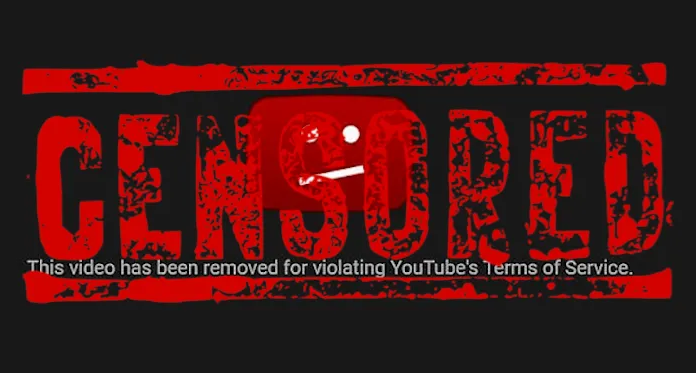
With the recent wave of bans, de-platforming and demonetisations that have happened on YouTube and other social media sites, it seems Big-Tech has continued with its trend of silencing dissident thought. This push came largely after the 2016 US presidential election of Donald Trump, and the 2016 Brexit vote. These elections rocked the media establishment, as well as social media providers, to the core. In their minds, Trump wasn’t supposed to win, and the UK wasn’t supposed to be able to leave the EU – after all, the entire old media establishment was against them. These unthinkable feats were made possible with the public forum of social media. Ideas such as nationalism, anti-globalism and the questioning of authority were allowed to flourish on many social media sites. Unfortunately, these achievements shocked the CEO’s and owners of these social media platforms as much as those in the old media. These rootless globalists couldn’t allow events such as these to happen again, they needed to stop these ideas from spreading and becoming more and more popular.
Around the election of Trump there was a wave of banning. The Right Stuff podcast was removed from SoundCloud, somewhat popular pro-trump libertarian Milo Yiannopoulos was banned from twitter, Richard Spencer’s National Policy institute was also banned from Twitter. Of course, these are some of the more eccentric and controversial figures of the ‘alt-right’, making it easier for the corporations to justify the banning. However, as time went on, more reasonable, larger and respectable dissidents’ voices were silenced. The more controversial figures were used as a precedent to ban more respectable ones in the following years.

In 2017 and 2018 the bannings escalated. Right wing parties and political movements such as the Traditional Workers Party, Golden Dawn and the Nordic Resistance Movement were banned from Twitter and Facebook. In a blatant act of collusion, most of the staff from the highly popular conspiracy theory network ‘InfoWars’ were banned from YouTube, Facebook, Spotify, Apple, Pinterest, Vimeo and Twitter within weeks. Other dissident commentators such as James Allsup, Anthime Gionet and Elizabeth Johnson were silenced on twitter.
2019 was by far the worst year for the dissent thinkers and movements on big-tech social media, especially on Google’s YouTube. Accounts for organisations such as the American Identity Movement, Proud Boys and Patriot Front along with a myriad of other channels including James Allsup, The Iconoclast, and Way of the World were banned from YouTube with no warnings or terms of service violations. Other channels such as The Golden One and Steven Crowder had their channels demonetised. Youtube CEO, Sussan Wojciki, later admitted in 2019 what many nationalists have suspected for years – that nationalist and dissident voices on YouTube were getting buried by the site’s algorithm. New videos were not showing up in subscription feeds, only leftists and mainstream videos were showing up in the recommendations, and certain channels and videos were not showing up in search results. Susan Wojciki called this the “Four Rs of Responsibility”. The four Rs program allows NGOs such as the ADL, as well as commercial advertisers, to flag videos or creators as ‘extreme’. After which, Youtube will bury, demonitize or remove these videos or channels.

Where to from here?
Fortunately, not all is bleak. There are alternatives to the current social media giants. Sites such as BitChute (alternative YouTube) and Gab (alternative Twitter) currently don’t arbitrarily remove dissident voices, and as more and more people become frustrated with the multitude of bad decisions that big-tech have made on behalf of commercial advertisers and NGOs, these alternative platforms will continue to grow. It must also be stressed that you cannot rely on social media to share ideas. Meet and organise in real life, and share articles and books with your friends and acquaintances. Unfortunately, the former public squares of social media are no longer public, and will de-platform you if you raise too much criticism of the current system. Luckily, de-platforming someone from real life is much harder. Start organising!

Very interesting article, thank you.
Improvements to gab will be deployed over the next few months. I think this is where it’ll really take-off. In March they managed to cover all their costs for the first time ever.
http://www.gab.com/a
http://www.twitter.com/getongab